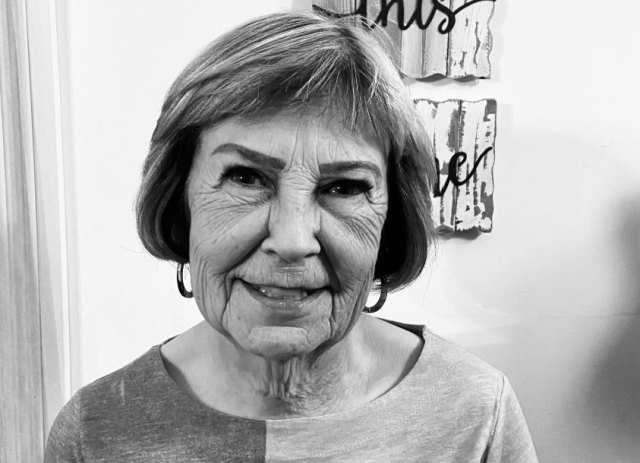Canada is built on land stolen from the people who were living here first.

Learning
Greetings! My name is Delores Kenny and I am a Cree woman from Muskeg Lake First Nation. I grew up in my community and was subjected to structural racism from birth. Growing up on reserve, I experienced how Canada fails to provide adequate investments in infrastructure. In some cases, on-reserve conditions mirror those in developing countries. I also experienced socio-economic inequalities that continue to be created and perpetuated.
Currently, I live in Muskeg Lake and attend St. Thomas Wesley United Church in Saskatoon. My congregation has accepted me, and I feel welcome and understood by my community of faith. I sometimes go for coffee in the towns closest to my community and have been hearing mostly White folks say out loud, “Why don’t these Indians find work and quit expecting handouts all the time? It’s our tax dollars that pay their way.” Unfortunately, a lot of non-Indigenous people believe it’s “the handouts,” the root of the “lazy Indian” stereotype, and not the attitude that should stop.
I would like to debunk these incorrect assumptions that are made about taxes and the “handouts” myth:
- Everything Canada has is because the land was stolen from the people who were living here first. As much as 95 percent of the Indigenous population of what is now Canada was killed and wiped out.
- Those of us Indigenous people who survived faced violence, disease, starvation, and genocide.
- The Canada that many non-Indigenous peoples benefit from would not have existed had my ancestors not cared for the land and the natural resources.
- We, as Indigenous Peoples, were segregated to reserves, forced into residential schools, and denied human rights while many non-Indigenous peoples benefitted.
- The money paid out to Indigenous people is money held in trust by the state; it is not taxpayer money. It is money generated by the resources that Indigenous people were forced to “hand over” via treaties. It’s money owed to Indigenous Peoples, money stolen from us as Indigenous Peoples.
A key question is, who is paying for whom? Why are there so many incorrect ideas about taxpayer money and us receiving “handouts”? Why do so many racial stereotypes persist about us as Indigenous Peoples being lazy—and how might all of these ideas be challenged and dismantled?
Faith Reflection
Prayer
Mother God, Beloved Christ, and Sister Spirit,
May this moose hide
remind me of my commitment
to create and live in a society where Indigenous women, girls, and 2SLGBTQIA+ people experience
the freedom to flourish within a healthy society that respects, values, and cherishes the human rights and dignity of all people.
May I join with others to be a part of your healing and restoration.
Amen.
Living It Out
Consider watching this seven-minute video about a piece of Canadian legislation that particularly affects Indigenous Peoples. Perhaps show it one day in worship or in a gathering after church; then, talk more together about the treaty that your community of faith is situated on.
For further learning, Home on Native Land is an excellent resource. It includes a self-guided course about Indigenous justice in Canada, which includes engaging videos and cartoons. A suggestion would be to get a small group together in your community of faith and invite people to move through this course content on their own. Then, gather that group to talk about everyone’s learnings and what implications there might be for your community of faith.
—Delores Kenny (she/her) is a band member of Muskeg Lake Cree Nation. She has just recently started work as a student support person at the Saskatchewan Indian Institute of Technology—and she loves it. She is the chairperson for her mamohkamatowin Indigenous-led spiritual group in Saskatoon out of the old St. Thomas Wesley United Church. She recently became a member of the National Indigenous Council and is looking forward to working within her community.